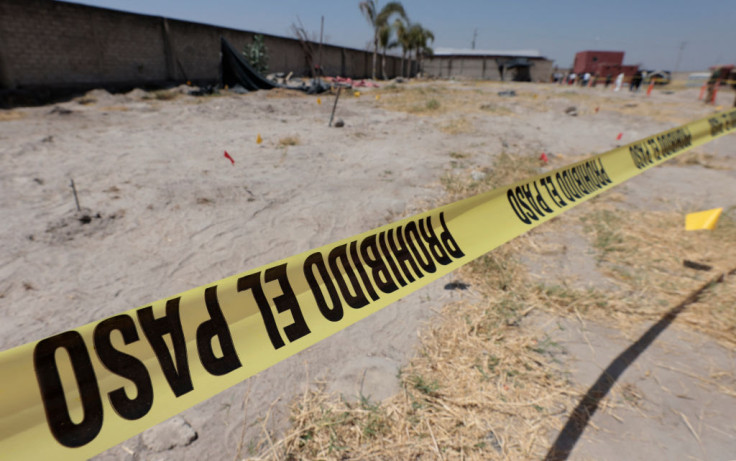
Earlier this year, the United Nations Committee Against Enforced Disappearances launched a formal process to investigate Mexico's handling of disappearances to determine whether the cases are widespread or part of a systematic pattern.
For many years, kidnappings and disappearances have affected thousands of people across Mexico. Despite recent comments from President Claudia Sheinbaum, who said most of these cases are linked to organized crime, a new report found that hundreds of incidents have involved federal, state and municipal forces, underscoring the role of authorities in the country's ongoing disappearance crisis.
"The disappearances that occur in Mexico are linked to organized crime in the vast majority of cases. It is very different from what happens today, where it is not the Mexican state," Sheinbaum said during her morning press conference on Oct. 27.
However, an investigation by Animal Político documented a pattern of crimes against humanity allegedly committed by federal, state and municipal security forces against 1,524 innocent or defenseless victims during the administrations of Felipe Calderón, Enrique Peña Nieto and Andrés Manuel López Obrador.
According to Animal Político's investigation Permiso para matar ("License to Kill"), in the vast majority of the cases, the victims had no ties to organized crime and were not under investigation. Nonetheless, they were attacked by authorities for behavior considered suspicious, such as appearing nervous, wearing certain clothing or failing to stop at a checkpoint.
The report found that most victims were young people from low-income or vulnerable communities and that they were arbitrarily killed or disappeared.
"The last three governments, each led by one of Mexico's three main political parties, have cases in which officials first reported a 'shootout between criminals and authorities,'" said Daniel Moreno, editor of Animal Político. "However, investigations by journalists, civil society organizations and relatives later revealed that the incidents did not happen as reported. Even the number of victims often did not match, and in many cases, it was proven that the crimes were actually committed by public security forces."
The U.N. committee has highlighted a problem in which federal, state and municipal authorities in Mexico have committed or allowed enforced disappearances to occur during previous administrations, without an adequate response from the Mexican government to prevent new cases or ensure justice for crimes already committed.
Animal Político's investigation also found that in the past nine years, 66,000 cases were added to the national registry of missing and unlocated persons. In that same period, only 373 convictions were recorded, meaning more than 99 percent of cases remain unpunished.
Since April, Mexico's ruling party Morena and its lawmakers, along with the National Human Rights Commission (CNDH), have rejected the U.N. committee's findings. And more recently, the Ministry of Foreign Affairs also challenged the committee's claims.
The government argues that there is no state order, nor any directive from President Sheinbaum, to carry out forced disappearances.
Sheinbaum again defended her administration's approach this week, saying the violence seen today is different from past state-directed repression
"It is not state violence, as it was in the '60s, '70s and part of the '80s. It was not the political disappearances that occurred in our country, where activists or guerrillas, if they existed, were not tried according to the law. Back then, there were forced disappearances for political reasons. That is very different from what happens today in Mexico, where it is not the Mexican state," she said.
She acknowledged the ongoing problem of disappearances but stressed that her government is taking steps to address it.
"Of course it must be addressed, which is why we made changes to the laws and continue working on this issue. But it is different, and that is what we want to make clear in these U.N. documents, because it is not clearly stated," Sheinbaum said.
© 2025 Latin Times. All rights reserved. Do not reproduce without permission.







